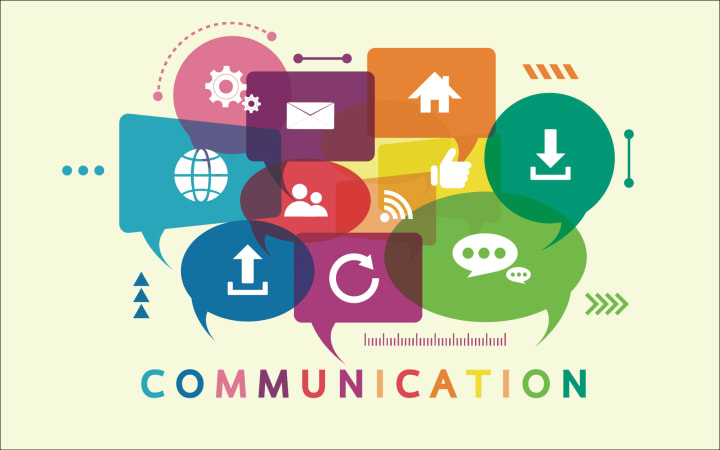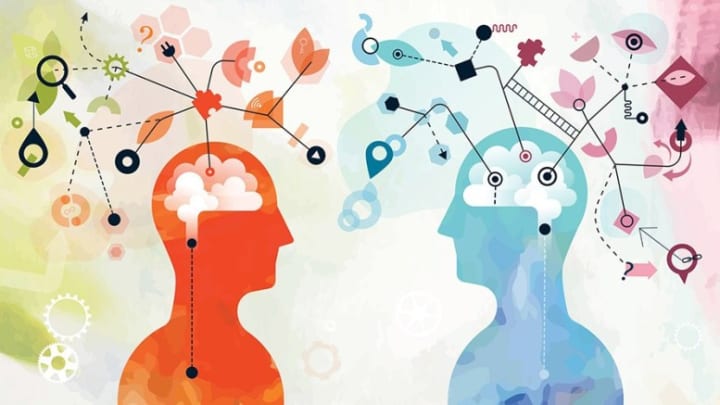How to Communicate Efficiently
The verbal & non-verbal best strategies to land connections and find your next opportunity through networking.

Effective communication is crucial in all aspects of life, especially in business. Whether you're in a meeting, negotiating a deal, or simply having a conversation with a professional, it's essential to communicate effectively. The ability to communicate well not only helps you build stronger relationships, but it can also lead to better outcomes and increased success. In this article, we will explore the top methods used by successful businessmen for communicating during conversations with professional people.
Active Listening
Active listening is the most critical element of effective communication. It involves giving your full attention to the person speaking, focusing on what they are saying, and trying to understand their perspective. Active listening involves listening to not just what the person is saying but also their tone of voice, body language, and other nonverbal cues.
To become an active listener, you must first eliminate all distractions, including your phone, computer, or anything else that may take your attention away from the conversation. Make eye contact with the person speaking, nod your head to acknowledge what they're saying, and use open-ended questions to encourage them to share more.
Active listening helps you gain a deeper understanding of the person's thoughts and feelings, which can help you respond appropriately and build trust.

Clarity
Clarity is essential when communicating with professional people. Use clear and concise language, avoiding technical jargon or confusing terminology that could be misinterpreted. Speak in a confident and assured tone, but also be willing to listen and respond to questions or concerns.
It's essential to be clear about your intentions, goals, and expectations. This ensures that everyone is on the same page and can work towards a common goal.
Empathy
Empathy is the ability to understand and share the feelings of another person. It involves putting yourself in the other person's shoes, seeing things from their perspective, and acknowledging their emotions.
Empathy is crucial when communicating with professional people as it helps you build rapport and trust. When you show empathy, you demonstrate that you care about the other person and their feelings. This can lead to a stronger relationship and a more positive outcome.

Confidence
Confidence is essential in any professional setting. It involves being sure of yourself and your abilities, speaking with conviction, and standing up for your beliefs.
Confidence can help you build credibility and influence in a conversation. It shows that you are knowledgeable and experienced, which can lead to increased respect and trust from your peers.
Authenticity
Authenticity involves being true to yourself and your values. It involves being honest, transparent, and genuine in your communication.
When you communicate authentically, you build trust with the other person. They see that you are sincere and honest in your intentions, which can lead to a stronger and more positive relationship.

Nonverbal Communication
Nonverbal communication includes body language, facial expressions, and tone of voice. These nonverbal cues can be just as important as what you say when communicating with professional people.
For example, making eye contact can demonstrate confidence and trustworthiness. Smiling can show that you are friendly and approachable. Keeping an open posture can show that you are receptive to the other person's ideas.
Understanding and using nonverbal communication effectively can help you convey your message more clearly and build rapport with the other person.

Asking Questions
Asking questions is a powerful way to communicate effectively with professional people. It shows that you are interested in their perspective, opinions, and ideas.
Asking open-ended questions can encourage the other person to share more and provide you with valuable insights. It can also help you understand their thought process and develop a deeper understanding of their perspective.
In conclusion, communication is an essential aspect of business success, and communicating effectively with professional people is a skill that can be developed and honed. By using the top methods discussed in this article, such as active listening, clarity, empathy, confidence, authenticity, nonverbal communication, and asking questions, you can improve your communication skills and build stronger relationships with your colleagues and clients. Remember, effective communication is not just about what you say, but how you say it, and by implementing these top methods, you can communicate your ideas and goals with clarity, confidence, and authenticity. So go out there and make some connections, who knows, they may just land you your next big opportunity!
About the Creator
Aaron Volf
Discover a new perspective on life through my eyes. With a unique voice, attention to detail, and a passion for exploring new ideas, my writing will leave you inspired, informed, and eager for more.
Enjoyed the story? Support the Creator.
Subscribe for free to receive all their stories in your feed. You could also pledge your support or give them a one-off tip, letting them know you appreciate their work.






Comments
There are no comments for this story
Be the first to respond and start the conversation.